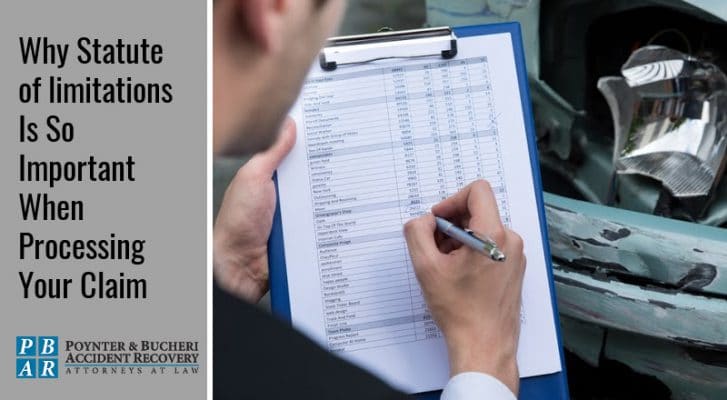
Why Statute of limitations Is So Important When Processing Your Claim

If you’re seeking compensation for an injury after a car accident, slip-and-fall, or other injurious event, be aware that the clock is ticking. With any personal injury case, it’s best to get the compensation process in motion as soon as you can by contacting an Indiana personal injury attorney from the start.
In Indiana, that statute of limitations to file a lawsuit — essentially the deadline — for personal injury cases is two years from the date of loss. So, if you were injured in a car accident on May 1, 2020, you would have until May 1, 2022, to file a lawsuit.
If this two-year timeframe passes and you have not received compensation or filed a lawsuit, your claim will be barred. If you still attempt to file a lawsuit, a court will likely dismiss it. Be sure you understand the details and the few exceptions to this deadline.
The clock is ticking
Indiana legal code spells out the two-year statute of limitations deadline for personal injury cases. While car accidents, falls, and other injury cases often involve negligence, the statute applies to injuries caused by intentional conduct or other means, as well.
Ind. Code § 34-11-6-1 A person who is under legal disabilities when the cause of action accrues may bring the action within two (2) years after the disability is removed.
It’s important to note that, for car accident cases, insurance companies are aware of this two-year window. Car insurance companies often try to pay out as little money as possible, or even none at all, when compensating car accident victims. They may try and drag out a case without offering a settlement as the two-year statute of limitations approaches.
If that deadline passes, you will no longer be able to file a lawsuit to obtain compensation. Therefore, threatening to take an entity to court becomes meaningless, as that power has been lost.
Exceptions and extensions
There are some exceptions to the strict two-year statute of limitations. Accident victims who become disabled after an accident have two years from the date that their legal disability status is resolved to file a claim. Further, injured people under 18 have two years from the date they turn 18 to pursue compensation.
In a car accident case, for example, you may not be aware that negligence caused the accident until further researching the events. So, if evidence of negligence is discovered, your attorney may be able to argue that the statute date should be moved in light of new evidence. Similarly, if a person takes steps to conceal liability involving an accident, the statute may be reset to the date that such concealment is discovered.
Statutes might be delayed for cases involving workplace illness cases. The date of illness discovery could act as the statute start date. This situation also applies to some medical malpractice cases. It may be difficult to discover the effects of malpractice on the day of an operation or similar procedure, so the statute date may be moved to the date of discovery.
Contact a personal injury attorney
By contacting an experienced legal team and getting an Indiana personal injury lawyer on your side from the start, you’ll be sure to preserve your rights and legal capabilities for obtaining fair compensation after an injury.
If it has been nearly two years since your accident or injury, act quickly to contact a personal injury attorney. If the two-year date is only a week or two away, many lawyers will not take a case because it does not leave adequate time to prepare the case, research events, and make sure you have a good faith basis for your claim. The more time allotted, the better, but be sure to contact an attorney if you have not received a settlement and have only a month or so until your two-year date passes.
If you have a personal injury case and you’re looking for an experienced legal team to join your side, Poynter & Bucheri will help you to navigate your case and legal options. We’re ready to provide an honest assessment of your case and to fight for your maximum compensation. Contact us today.
